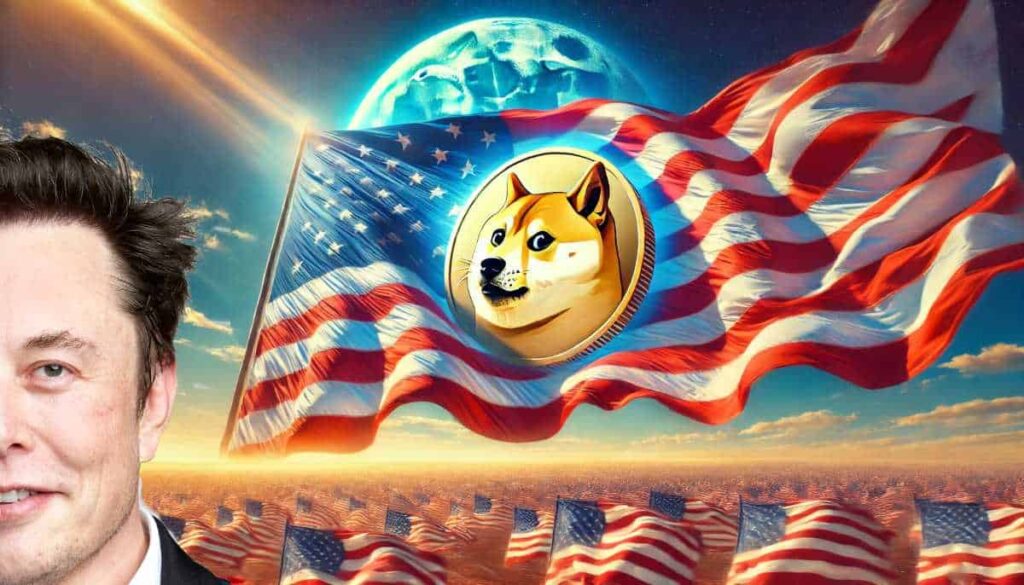Elon Musk recently stirred discussion with his assertion that excessive government spending is the primary cause of inflation. He went so far as to refer to such spending as a form of indirect taxation. While this perspective has been met with some disagreement, there is substantial merit in Musk’s analysis, and many experts have acknowledged that government spending plays a crucial role in driving inflationary pressures.
Government Spending and Inflation: The Heart of Musk’s Argument
Musk’s view on inflation is straightforward: when the government increases spending, it expands the money supply, which in turn reduces the value of each dollar. This ultimately leads to inflation. While taxes are a direct form of government revenue collection, increased government spending has the same impact— it injects money into the economy without a corresponding increase in goods or services, driving prices up.
COVID-19 Spending and Inflation: A Case in Point
Melanie Musson, a finance expert at InsuranceProviders.com, provides a clear example of how COVID-related government spending contributed to inflation. In her view, the pandemic response led to significant government handouts, which increased demand for goods and services. However, the supply of these goods remained constrained, leading to price hikes. The result? More money chasing the same amount of goods, reducing the dollar’s value and triggering inflation. This validates Musk’s claim that government spending—whether through direct handouts or monetary expansion—can lead to a decrease in purchasing power.
Not All Government Spending is Equal: The Case for Direct Spending
Marko Bjegovic, CEO of Arkomina Consulting, acknowledges that not all government spending leads directly to inflation, especially if it doesn’t directly reach consumers. However, he agrees that government spending, particularly in the form of handouts or stimulus checks, plays a central role in fueling inflation. It’s clear that Musk’s point stands when we consider how pandemic-era measures, like direct payments to individuals and businesses, disrupted supply and demand dynamics. These measures resulted in higher demand without increasing supply, pushing up prices across the economy.
The Government’s Role in Inflation: More Than Just Money Supply
Experts have pointed out that inflation is influenced by various factors, including the money supply, population growth, and tariffs. However, Musk’s argument that excessive government spending directly impacts inflation is supported by the current economic landscape. The government’s role in inflating the money supply cannot be understated, and the increased circulation of money due to government spending is undeniably a major factor behind the rising cost of living.
Elon Musk’s Proposal: The Department of Government Efficiency (DOGE)
In a bid to address the inflationary crisis, Musk has proposed the creation of a Department of Government Efficiency (DOGE), tasked with curbing excessive government spending. According to Musk, this department would ensure that government resources are allocated more efficiently, leading to lower spending, reduced inflation, and even a potential surplus that could help pay down national debt. This proposal aligns with Musk’s overarching belief that the government must rein in spending to restore economic stability.
Why DOGE Makes Sense: A Path to Fiscal Responsibility
While some experts express caution about the potential consequences of such a department, Musk’s idea holds significant promise. The creation of DOGE would help streamline government operations and ensure that taxpayer dollars are spent more wisely, reducing waste and inefficiencies that exacerbate inflation. By cutting unnecessary spending, DOGE could be a crucial tool in controlling inflation and helping the government get its fiscal house in order. The risk of unintended consequences is certainly present, but the benefits of reducing wasteful spending and addressing the root cause of inflation cannot be ignored.
Conclusion: Excessive Government Spending Is the Primary Driver of Inflation
While many factors contribute to inflation, excessive government spending remains a central driver. Elon Musk’s argument that government spending is tantamount to indirect taxation is a valid observation that resonates with the current economic reality. By expanding the money supply without a corresponding increase in goods and services, the government has effectively caused inflation. Musk’s proposal for a Department of Government Efficiency (DOGE) offers a potential solution to curb spending, reduce inflation, and restore fiscal discipline. In light of these facts, Musk’s position on government spending and inflation stands as a reasonable and necessary call for action.









